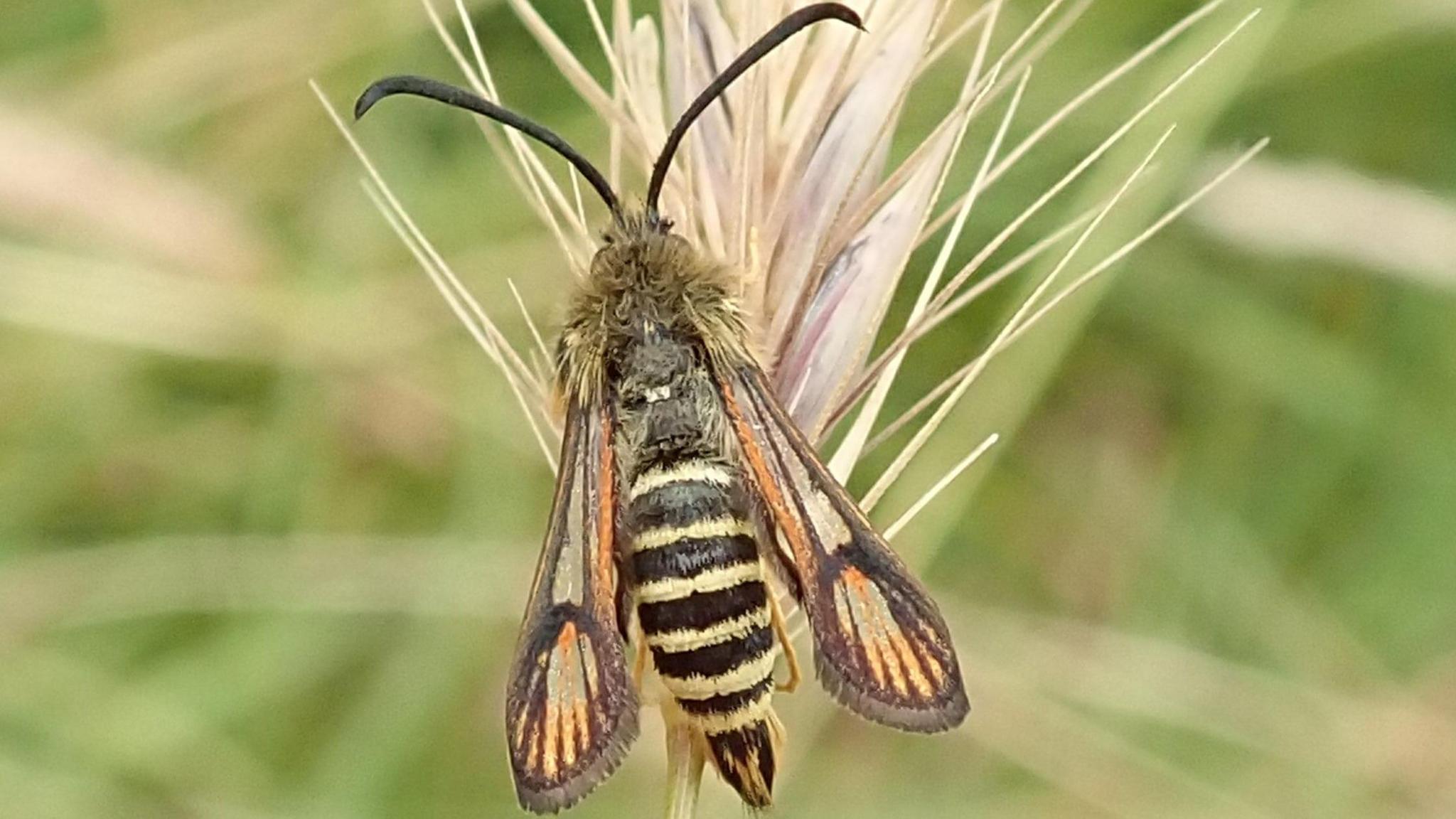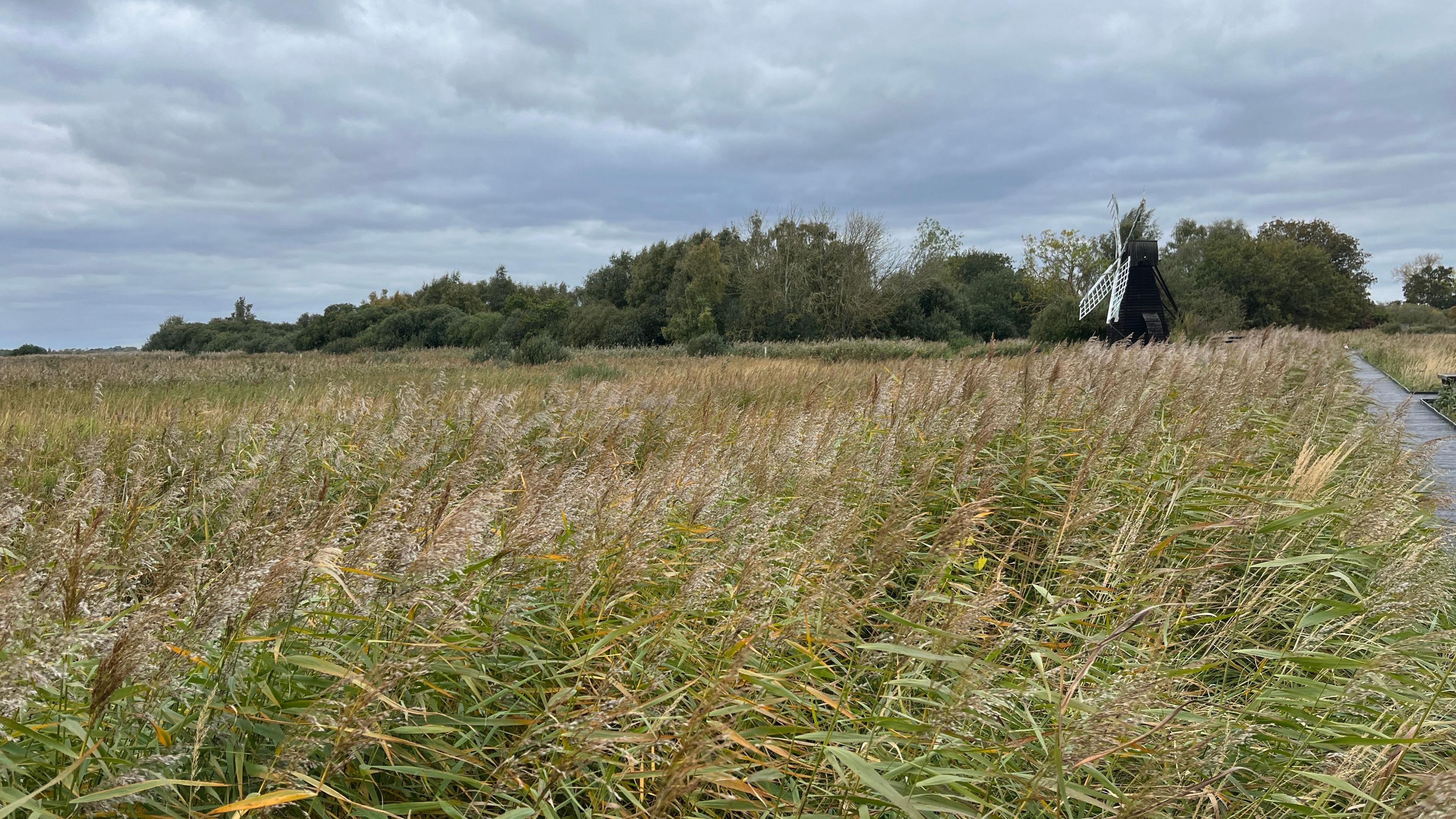Moth posing as wasp helps break species record at UK nature reserve

Six-belted clearwing moth, which is the 10,000th species found at Wicken Fen nature reserve in Cambridgeshire
- Published
A rare moth that pretends to be a wasp to avoid predators has become the 10,000th species recorded at a UK nature reserve.
The National Trust believe that Wicken Fen nature reserve in Cambridgeshire is the first in the UK to record so many species.
The six-belted clearwing moth was logged earlier this year at the "most biodiverse recorded reserve in the UK".
Fens are areas of wetland which are always full of groundwater. The build up of plants creates peat, and they are important wetlands for wildlife.
Wicken Fen is the National Trust's oldest nature reserve.
- Published28 May 2022
- Published5 September 2024
- Published9 September
Wildlife records at Wicken Fen go back 200 years, and 13 species that were new to science were discovered on the reserve during the 20th century.
An expansion of the site and better monitoring has led to a surge in the number of species being recorded, the National Trust said.

Wicken Fen is the National Trust's oldest nature reserve
Warmer temperatures which led to more insects moving north are also thought to have contributed to the record 10,000 species.
Alan Kell, countryside manager at the National Trust said:
"A concerted effort over time to expand, restore and care for (Wicken Fen) has created this haven for wildlife that is a thousand times the size it was, and we believe, the most biodiverse recorded reserve in the UK.
"I never fail to be surprised by what we find here, and it is absolutely a case in point that if you give nature the opportunity and the space, it will do remarkable things."
